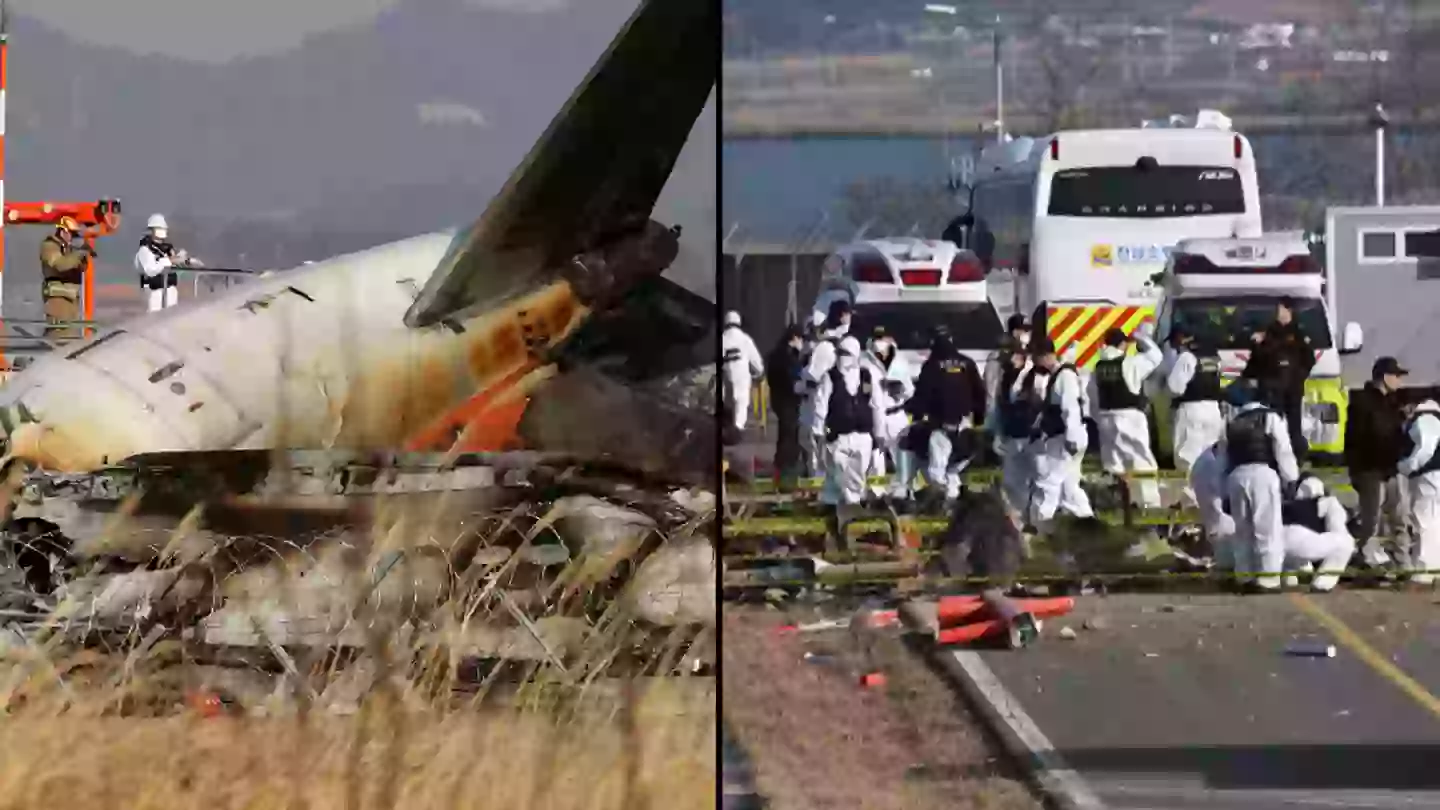
Experts have revealed what crucial factors might have saved the two passengers involved in the Jeju Air plane crash which claimed the lives of the other 179 people on board.
An investigation into the disaster which took place at Muan International Airport in southwestern South Korea on Sunday (29 December) remains ongoing.
The Boeing 737-800 jet was flying from Bangkok, Thailand, and on its landing into South Korea, slammed into a concrete fence and burst into flames at around 9:03am local time.
Its front landing gear reportedly failed to deploy, with some experts speculating that a bird strike could be cause of the incident.
Advert

According to South Korea's National Fire Agency, 179 people died out of the 181 people on the plane.
Thai authorities later confirmed that only two members of the cabin crew survived, a man and a woman.
Muan fire chief, Lee Jung-hyun, suggested that this was because they were located in the tail end of the plane, the only part that wasn't destroyed.
"Only the tail part retains a little bit of shape, and the rest of (the plane) looks almost impossible to recognise," he told a press briefing.
Advert
The two crew members were rescued from the tail section of the burning plane, the fire chief said, adding that they are currently being treated at hospitals with medium to severe injuries.
Notably, seats in the back of the plane are considered to be safer, as the back third of the aircraft, has a fatality rate of 32 percent, whereas those in the middle third had a fatality rate of 39 percent, according to a 2015 analysis by Time magazine of 35 years of Federal Aviation Administration (FAA) data, reports the Daily Mail.

Najmedin Meshkati, an engineering professor at the University of Southern California, says that the Boeing 737-800 has a good safety record and that investigators will learn what happened by looking into flight data and cockpit voice recorders.
“These are really the two pillars for accident analysis and accident reconstruction,” he said.
Advert
“Having such a big concrete barrier over there was really very bad luck for this particular aeroplane.”
Geoffrey Thomas, an aviation expert and commentator, also speculated to the BBC that a bird strike could be another possible reason.
He said: "It appears as though there has been a bird strike and one of the engines, the right-hand engine was impacted.
"This would have caused a lot of pressure in the cockpit.
"With all the checking and cross-checking going on relating to this engine failure, it could well be that [the] pilots simply forgot to put the landing gear down. Whether the engine situation was such that they felt they didn't have time to do that we don't know."
Advert
Thomas added: "A lot of things about this tragedy don't make sense."
In a statement, Boeing said: "We are in contact with Jeju Air regarding flight 2216 and stand ready to support them. We extend our deepest condolences to the families who lost loved ones, and our thoughts remain with the passengers and crew."
Jeju Air also added: "We deeply apologise to all those affected by the incident. We will make every effort to resolve the situation. We sincerely regret the distress caused."
Topics: Jeju Air, Travel, World News